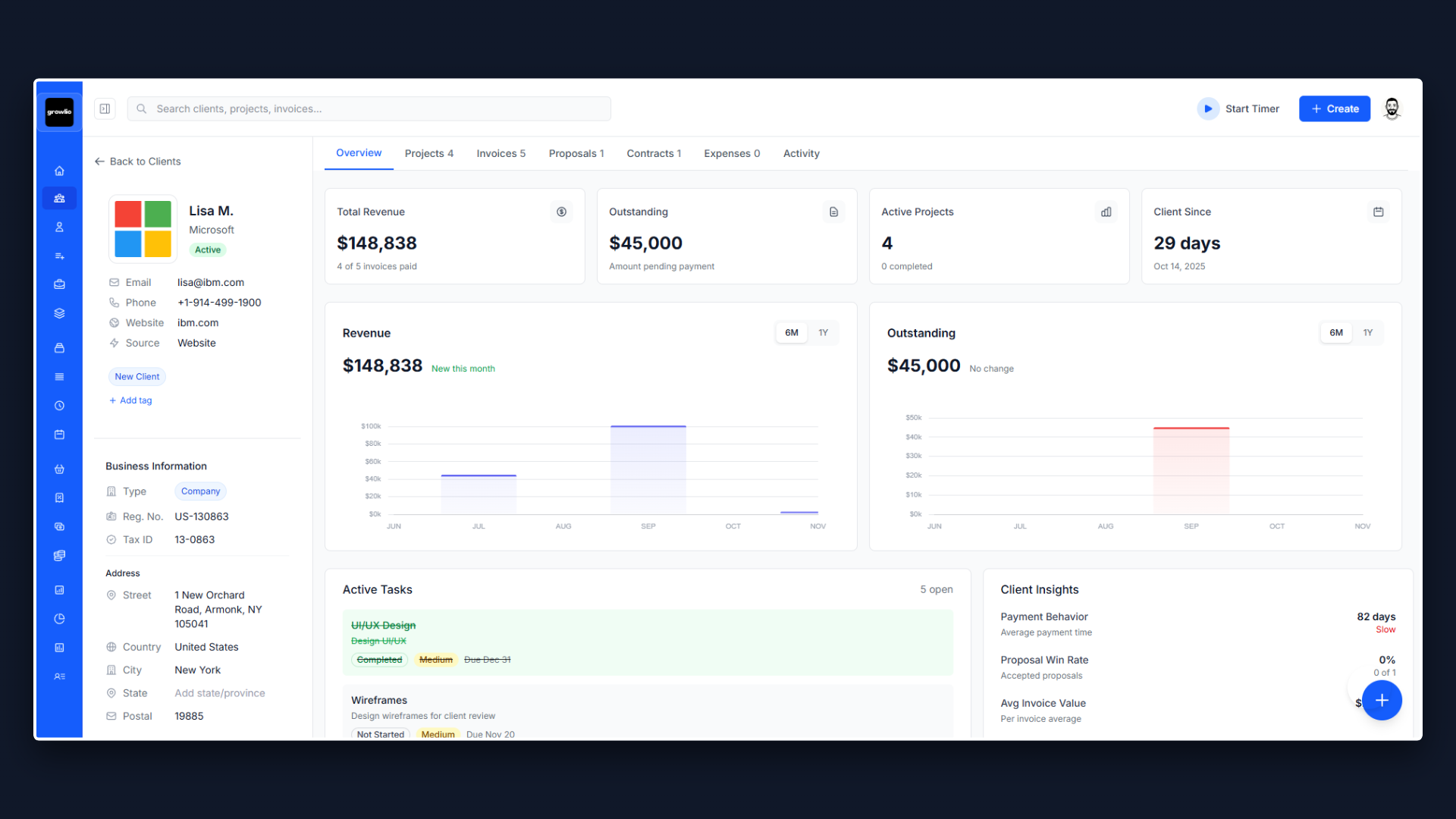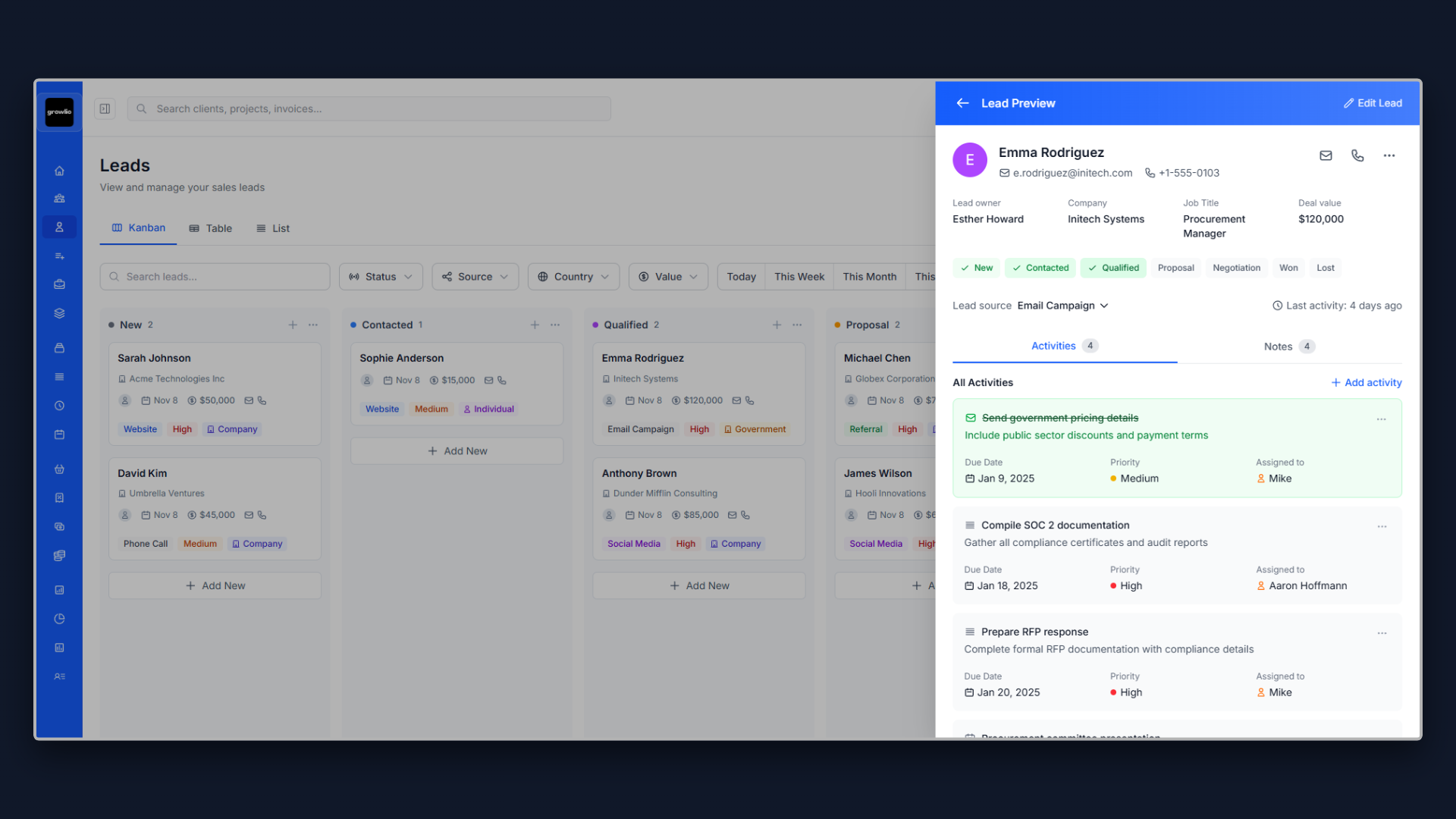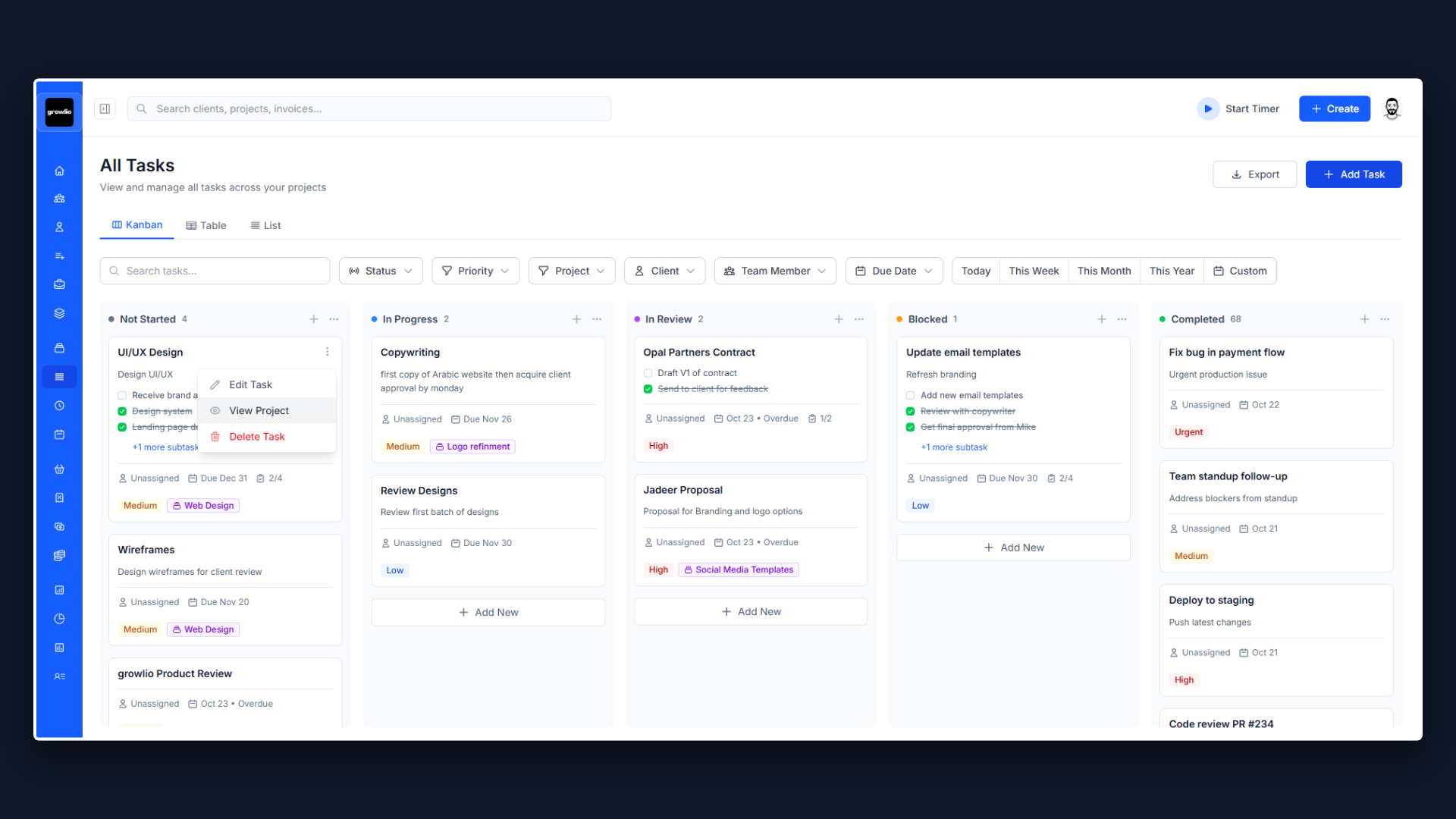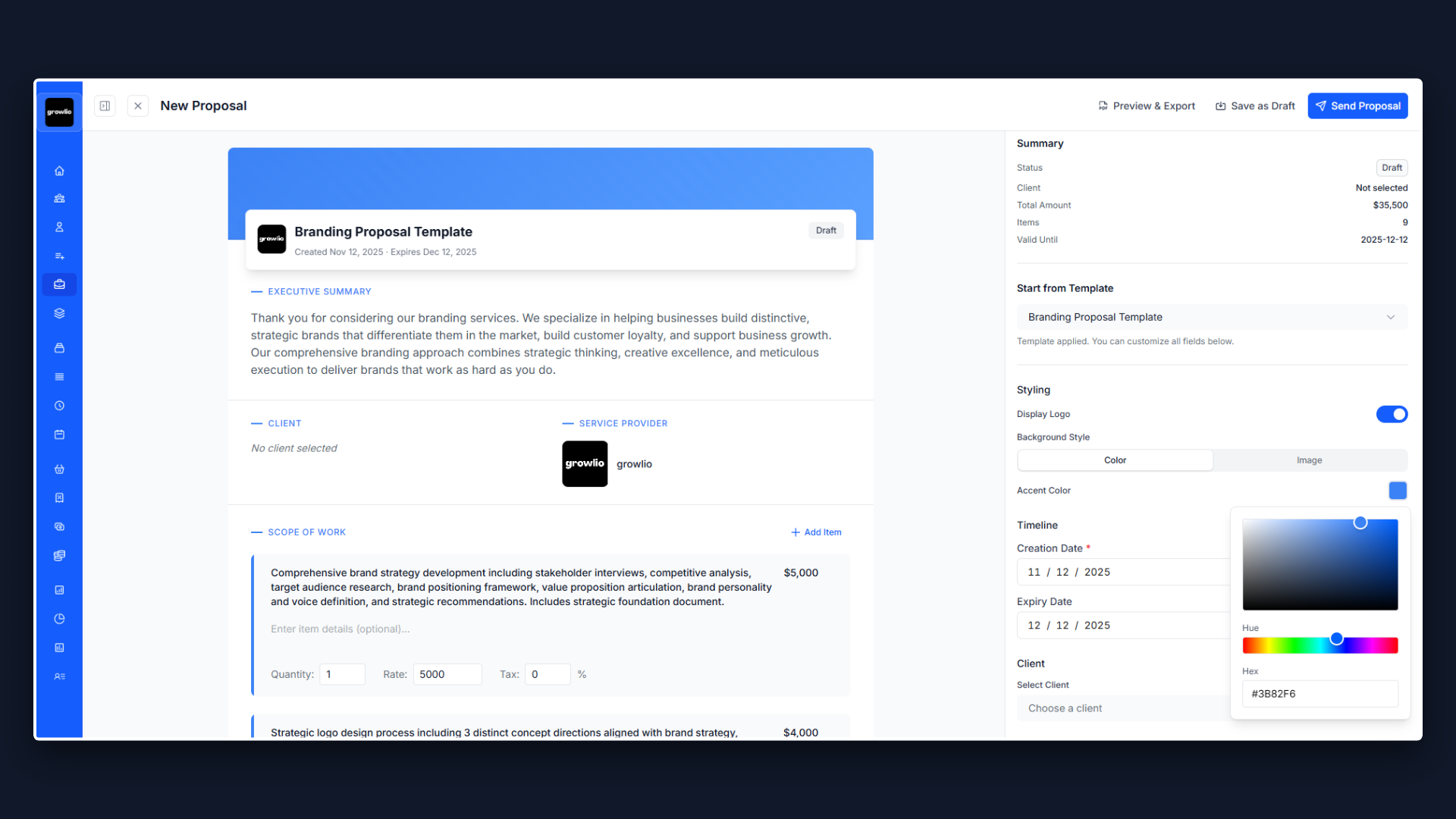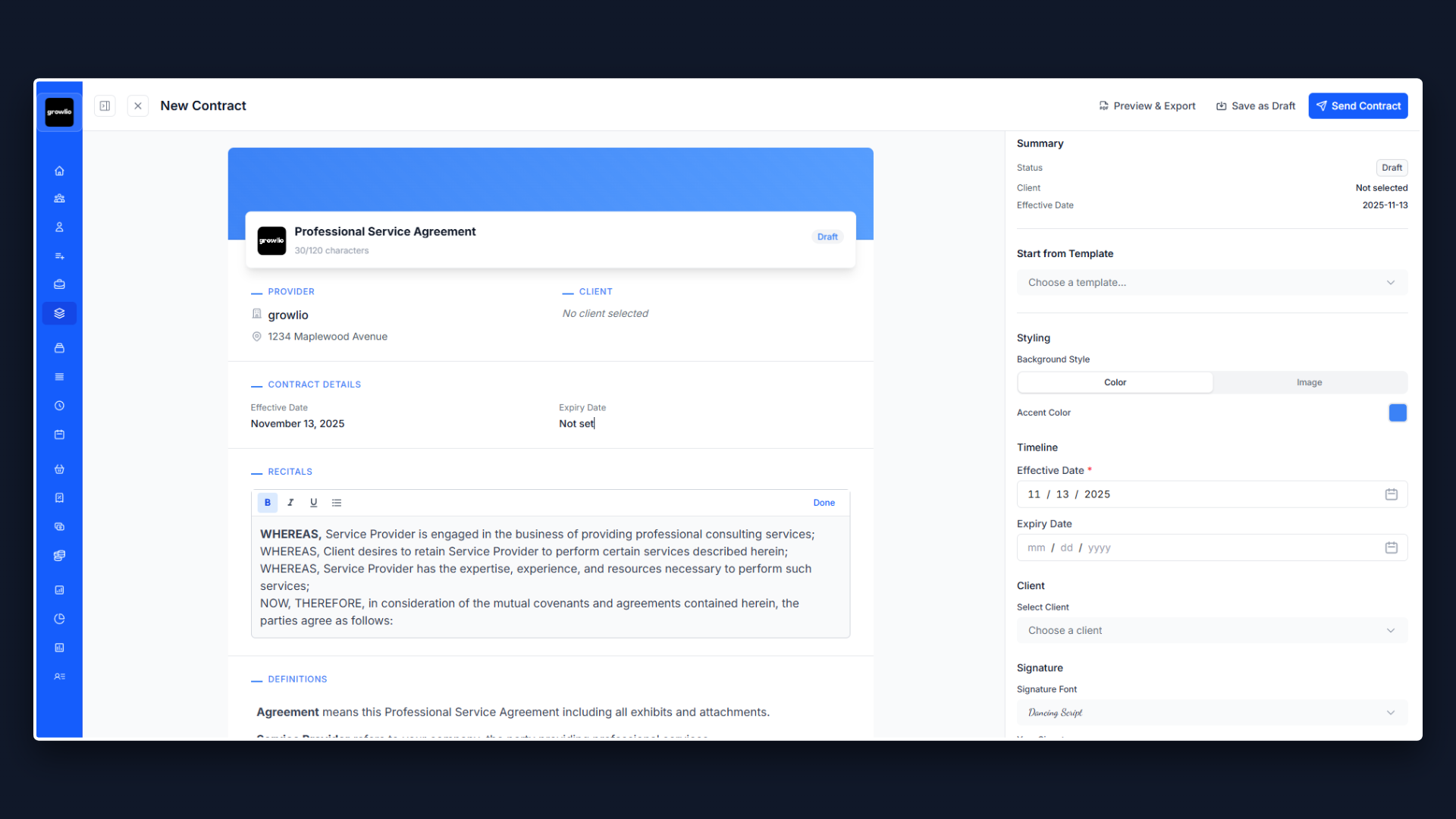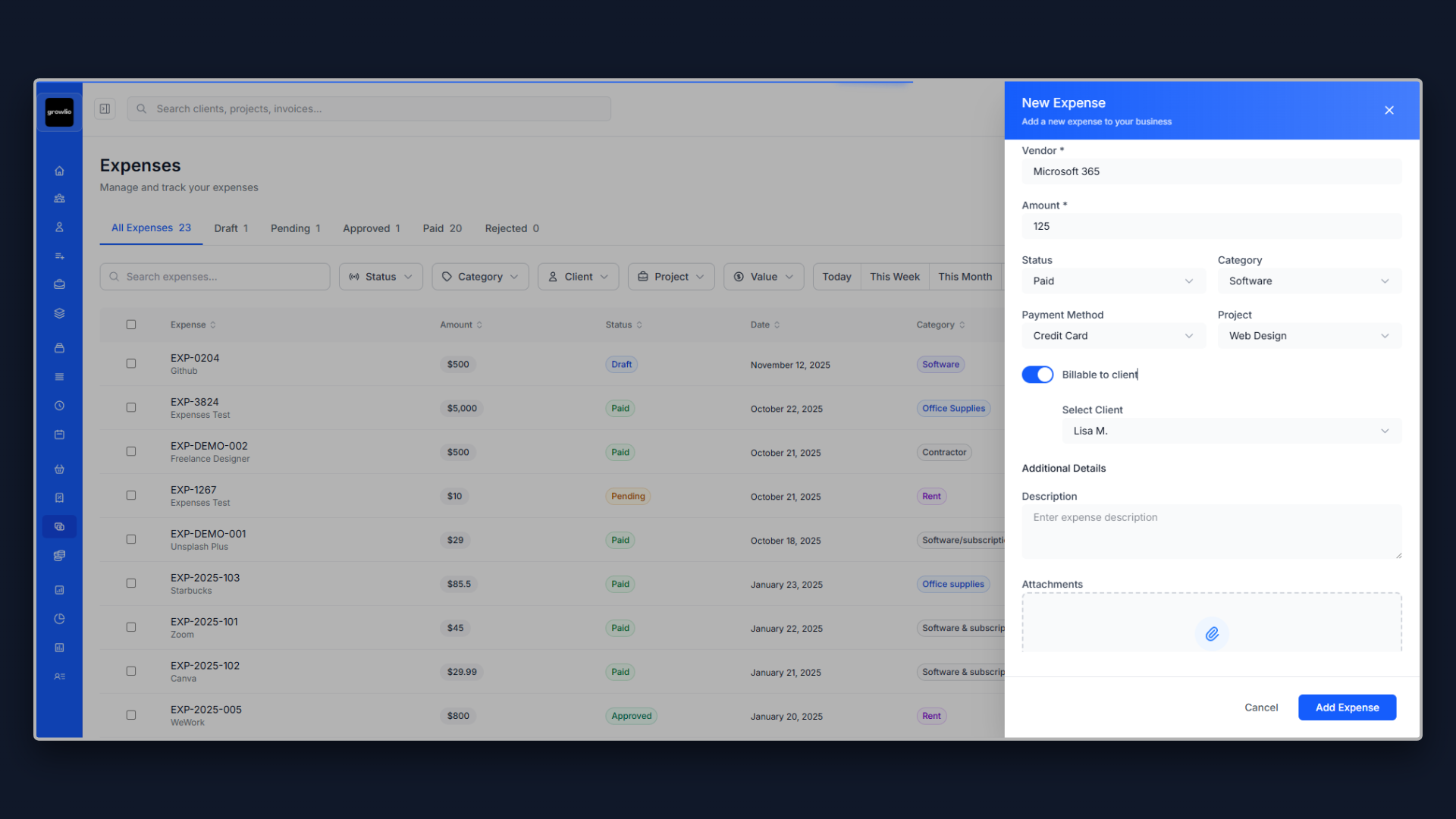Why Your Executive Coaching Proposal Determines Whether Leaders Invest in Development
In executive coaching, you are not just helping someone improve performance—you are partnering with leaders responsible for millions in revenue, hundreds of employees, and strategic decisions that shape organizational futures. Before a C-suite executive or senior leader invests $20,000-$50,000+ in coaching and commits to vulnerable self-examination, they need confidence you understand the unique pressures of executive leadership and can accelerate their effectiveness at the highest organizational levels.
The executive coaching industry generates over $3 billion annually, with organizations increasingly recognizing that leadership capability at the top determines organizational success or failure. Yet 60% of executive transitions fail within the first 18 months, and 40% of executives report feeling unprepared for their current role. The difference between executive coaches charging $300/hour and those commanding $800+/hour often comes down to how they present their executive expertise, proven frameworks, and value in proposals.
Your executive coaching proposal needs to accomplish several critical objectives simultaneously: demonstrate deep understanding of executive-level challenges and organizational dynamics, prove you have frameworks specifically for senior leadership development, showcase relevant experience coaching executives in similar roles and industries, address concerns about confidentiality, time commitment, and measurable impact, and differentiate your executive coaching from generic life coaching or lower-level leadership development. This is your opportunity to transform from a coach into a trusted advisor who enables executive excellence and organizational impact.
1. Open With Executive-Level Stakes, Not Coaching Credentials
The biggest mistake executive coaches make is leading with certifications: "I am an ICF PCC certified coach..." Your executive prospect does not care about coaching credentials yet. They care about the high-stakes challenges they face and the cost of leadership failure at their level.
Start by demonstrating you understand what is uniquely at stake for executives. For a new C-suite executive, open with: "You have just been promoted to the C-suite after 20 years of preparing for this moment. You are now responsible for a $200M P&L, a team of 300+, and strategic decisions that will define the company direction for years. The board and CEO have high expectations. Your peers are watching to see if you belong at the table. Your team is uncertain about your leadership. The gap between being a great VP and an effective C-suite executive is larger than you expected. You are working 70-hour weeks but still feel behind. The cost of failure at this level is not just personal—it is organizational impact, board credibility, and potentially your career trajectory. You need an executive coach who has guided C-suite leaders through exactly this transition—someone who understands board dynamics, enterprise strategy, and the executive presence required at this level. This is not about better time management—it is about fundamental transformation in how you lead, think, and operate as an executive."
For an established executive facing performance challenges: "You have been successful for years, but something has shifted. Your leadership approach that worked brilliantly as you rose through the ranks is no longer delivering results. Your team engagement scores are declining. Strategic initiatives are stalling. The board is asking harder questions. You are receiving feedback about leadership style but unclear how to change ingrained patterns while maintaining what made you successful. The stakes are clear: transform your leadership approach or risk being replaced. At your level, there is no margin for mediocrity and limited tolerance for extended underperformance. You need an executive coach who can help you evolve your leadership without losing what makes you effective—someone who has worked with executives navigating this exact evolution while maintaining organizational confidence."
This executive-stakes opening immediately shows you understand the unique pressures and high-wire nature of executive leadership. Now they are ready to hear your solution.
2. Define Executive Coaching Scope With Precision
Executive coaching is fundamentally different from general coaching. Be explicit about what executive coaching entails.
Structure scope definition precisely: What Executive Coaching With Me Includes:
Individual Executive Coaching Sessions: Bi-weekly or monthly 90-minute confidential coaching sessions (longer than typical 60-minute sessions for depth). Focus on strategic leadership challenges, organizational dynamics, and executive effectiveness. Real-time counsel on critical decisions and high-stakes situations. Board preparation, presentation coaching, and stakeholder management. Personal leadership development addressing style, presence, and impact. Balance of challenge and support appropriate for executive level.
360-Degree Feedback Assessment: Comprehensive 360 assessment with boss, peers, direct reports, and other stakeholders. Confidential compilation and analysis of feedback themes. In-depth debrief session interpreting feedback and identifying development priorities. Progress assessment at 6 months showing leadership evolution. Integration of insights into ongoing coaching conversations.
Leadership Assessments and Tools: Executive-level assessments (Hogan, MBTI, EQi, DiSC, StrengthsFinder as appropriate). Analysis of leadership style, decision-making patterns, and development areas. Custom frameworks and tools tailored to your specific challenges. Access to curated resources, articles, and thought leadership relevant to your development.
Between-Session Support: Email and text access for urgent strategic questions or situations (response within 4 hours during business hours). Preparation support before critical meetings, presentations, or difficult conversations. Debrief calls after major events or decisions to extract learning. Document review (presentations, communications, strategy documents) with feedback.
Stakeholder Engagement (Optional): Periodic check-ins with your boss or board sponsor on progress (with your approval). Alignment conversations ensuring coaching supports organizational priorities. Feedback to HR or talent team on development progress (always with your explicit permission).
What Executive Coaching Is Not: Therapy addressing mental health or personal trauma (I refer to licensed therapists when needed). Consulting where I solve your business problems (I help you develop capability to solve them). Performance improvement plan enforcement or HR-mandated remediation (coaching works best when voluntary). Quick fix for organizational or strategic problems requiring different interventions. Mentorship or advice-giving (I use coaching methodology, not directive consulting).
Confidentiality and Boundaries: Everything discussed in coaching sessions remains confidential (exceptions: legal obligation, harm to self/others). I do not report coaching content to your organization without your explicit written permission. Stakeholder feedback shared only with your approval and review. Professional boundaries maintained—our relationship is coaching partnership, not friendship. ICF Code of Ethics adherence ensuring professional standards and your protection.
Your Commitments as Executive Client: Attend scheduled sessions or provide 48-hour notice to reschedule. Be candid about challenges, including difficult feedback or personal struggles. Take action on commitments between sessions despite competing priorities. Invest time in assessments, 360 process, and development activities. Provide feedback when coaching is or is not working so we can adjust.
My Commitments as Executive Coach: Bring executive-level perspective and challenge appropriate to your seniority. Maintain absolute confidentiality within agreed parameters. Continue my own development in executive leadership and coaching. Tell you the truth even when uncomfortable or inconvenient. Focus on your development and organizational impact, not my agenda.
This clarity sets appropriate expectations for the executive coaching relationship and distinguishes it from lower-level coaching.
3. Present Executive-Specific Coaching Methodology
Generic coaching frameworks do not work for executives. Present an approach tailored to senior leadership.
Present your methodology: My Executive Coaching Framework: Leadership Evolution Model
Phase 1: Assessment & Insight (Months 1-2)
What we focus on: Comprehensive 360-degree feedback from all stakeholder groups. Executive assessments revealing leadership style, strengths, and development areas. Current state analysis of your effectiveness, organizational impact, and challenges. Identifying leadership patterns serving you well and those limiting effectiveness. Defining clear development objectives aligned with organizational and personal goals.
Deliverables: 360 feedback report and debrief, assessment results and interpretation, development plan with 2-3 priority focus areas, baseline metrics for measuring progress.
Outcome: Deep self-awareness and clarity on specific leadership behaviors to develop or modify.
Phase 2: Strategic Development (Months 3-6)
What we focus on: Developing executive presence and gravitas appropriate to C-suite level. Enhancing strategic thinking and ability to operate at appropriate altitude. Building high-performing teams through better delegation, development, and accountability. Navigating organizational politics and stakeholder relationships more effectively. Evolving communication style for greater impact with diverse audiences.
Tools and approaches: Executive presence exercises and real-time feedback. Strategic thinking frameworks applied to your actual challenges. Team effectiveness assessments and coaching on team leadership. Stakeholder mapping and influence strategy. Communication coaching before key presentations or conversations.
Outcome: Measurable improvement in leadership effectiveness visible to stakeholders.
Phase 3: Integration & Sustainability (Months 7-9)
What we focus on: Consolidating new leadership behaviors and making them sustainable habits. Addressing advanced challenges as baseline effectiveness improves. Preparing for next career stage or expanded responsibilities. Building self-coaching capability for continued development. Mid-engagement 360 or stakeholder feedback showing progress.
Outcome: Sustained behavior change and increased confidence in executive capabilities.
Phase 4: Optimization & Transition (Months 10-12)
What we focus on: Optimizing leadership effectiveness and organizational impact. Planning for coaching conclusion and self-sustaining development. Identifying future development areas beyond our engagement. Ensuring accountability systems in place for continued growth. Final assessment comparing to baseline showing transformation achieved.
Outcome: Executive operating at significantly higher level with tools for ongoing development.
What Makes This Executive-Specific: Altitude appropriate to senior leadership (strategic vs. tactical focus). Real-time coaching on actual executive challenges (board presentations, org restructuring, crisis management). Stakeholder perspective integrated through 360 and organizational feedback. Focus on organizational impact, not just personal development. Balance of leadership development with business results orientation. Preparation for ongoing career progression to next level.
This framework demonstrates you understand executive development is different from general leadership coaching.
4. Showcase Executive Coaching Experience and Results
Executives want to know you have coached leaders at their level. Share specific executive client results.
Present targeted results: Executive Clients I Work With:
My Executive Coaching Specialty: C-suite executives (CEO, CFO, COO, CHRO, CTO) in first 2 years of role. Senior Vice Presidents transitioning to C-suite or leading major business units. High-potential executives identified for C-suite succession. Executives navigating significant organizational change or transformation. Leaders receiving feedback requiring evolution of leadership approach.
Industries I Serve: [Your specialization: Technology, Healthcare, Financial Services, Manufacturing, Professional Services, etc.]. I understand your industry dynamics, competitive pressures, and business models. I speak your language and know the context shaping your leadership challenges.
Executive Client Success Stories:
Robert K., CFO (Private Equity-Backed Company)
Situation: First-time CFO at PE-backed company, struggling with board relationships, strategic influence beyond finance, and managing senior finance team.
Coaching Focus: 12-month engagement on executive presence, strategic communication, board dynamics, and team leadership.
Results: Board feedback improved from concerns about strategic thinking to recognition as key strategic voice. Successfully led two acquisitions demonstrating enterprise leadership beyond finance function. Built high-performing finance team through better delegation and development (engagement scores increased 40%). Positioned for CFO role at larger portfolio company. Board sponsor reported coaching was "transformational investment."
Jennifer M., SVP to President Transition
Situation: Promoted from SVP Sales to President of $400M business unit, first time leading P&L and multiple functions beyond her expertise.
Coaching Focus: 9-month engagement on enterprise leadership, cross-functional management, strategic thinking, and executive team building.
Results: Successfully transitioned from functional leader to enterprise business leader. Built effective leadership team across sales, operations, product, and finance. Grew business unit revenue 18% while improving margins through operational excellence. 360 feedback showed marked improvement in strategic thinking and collaborative leadership. CEO cited her as model for other SVP to President transitions.
David L., CEO (Family Business Succession)
Situation: Second-generation CEO taking over $150M family business, navigating family dynamics, modernizing culture, and establishing credibility separate from family name.
Coaching Focus: 12-month engagement on leadership identity, organizational change, stakeholder management, and executive presence.
Results: Successfully established authority and leadership identity separate from founder father. Initiated culture transformation toward performance accountability and professional management. Navigated family board dynamics setting appropriate boundaries. Company revenue grew 22% under his leadership with improved talent retention. Board (including father) expressed confidence in his long-term CEO capability.
Typical Executive Client Outcomes: Measurable improvement in 360 feedback scores (average 25-35% improvement in development areas). Enhanced executive presence and credibility with boards, peers, and teams. More effective at navigating organizational politics and stakeholder relationships. Improved strategic thinking and ability to operate at appropriate altitude. Greater confidence and reduced stress despite increased responsibilities. Successful navigation of major transitions (new role, organizational change, crisis). Career progression to next level within 12-24 months post-coaching for many clients.
These executive-specific examples prove you work at the right altitude and deliver results with senior leaders.
5. Address ROI and Business Impact
Executive coaching is a significant organizational investment. Help executives and sponsors understand the return.
Quantify value: Understanding Executive Coaching ROI:
Direct Organizational Impact: Leadership effectiveness: Research shows executive coaching delivers 5-7x ROI through improved decision quality and team performance. Talent retention: Effective executives retain top talent saving $150,000-$500,000 per prevented departure. Strategic execution: Better execution of strategies improving organizational results by millions. Team performance: High-performing teams led by developed executives deliver 20-30% better business results. Succession readiness: Accelerates executive readiness reducing external hire costs ($200,000-$500,000+ for C-suite searches). Crisis navigation: Executives with coaching support navigate crises more effectively minimizing organizational damage.
Individual Executive Value: Career acceleration: Coaching often accelerates progression to next level by 12-24 months. Compensation impact: C-suite roles pay $300,000-$2M+—accelerating readiness has significant financial value. Reduced failure risk: 60% of executive transitions fail; coaching dramatically improves success odds. Expanded capability: Skills developed apply across career, not just current role. Personal wellbeing: Reduced stress and improved work-life integration worth significant quality of life value.
Cost of Not Investing: Executive failure: Replacing failed executive costs $500,000-$3M in recruiting, onboarding, and disruption. Delayed development: Every year of suboptimal performance costs organization in missed opportunities. Team attrition: Poor executive leadership drives talent loss with replacement costs of $150,000-$500,000 per person. Strategic misses: Ineffective executives miss market opportunities worth millions. Board confidence: Underperforming executives risk losing board confidence and role security.
Investment Perspective: 12-month executive coaching engagement: $30,000-$60,000 typical investment. For executive earning $300,000+: Coaching costs 10-20% of annual compensation. For organization: Investment of $50,000 delivering 5x ROI creates $250,000 in value. Compared to alternatives: External executive hire costs $200,000-$500,000 plus 6-12 month ramp time. Executive MBA programs cost $100,000-$200,000 with limited customization to specific role. Tactical training provides information but not personalized development and accountability.
How We Measure Impact: 360-degree feedback comparing baseline to 6-month and 12-month progress. Stakeholder interviews with boss, board members, or key stakeholders on observed changes. Business metrics relevant to role (team performance, strategic initiative success, etc.). Self-assessment on confidence, capability, and effectiveness. Achievement of specific development objectives defined at engagement start. Organizational outcomes (promotions, expanded responsibilities, successful transitions).
This ROI framing helps executives and organizational sponsors justify the significant investment.
6. Present Executive Coaching Packages and Investment
Executive coaching requires sustained engagement. Present packages reflecting the commitment needed.
Outline pricing clearly: Executive Coaching Engagements and Investment:
9-Month Executive Development Engagement - $36,000
Best for: New executives establishing themselves or specific leadership development focus. Includes: 18 bi-weekly 90-minute coaching sessions, comprehensive 360-degree feedback assessment, executive leadership assessments (Hogan, MBTI, or similar), email and phone support between sessions, review of presentations and communications, quarterly stakeholder progress discussions (with your approval), all tools, frameworks, and resources.
Payment: $12,000 upfront, $12,000 at month 4, $12,000 at month 7, or monthly payments of $4,200/month.
Ideal for: First-time C-suite executives, SVP to C-suite transitions, executives with specific development focus.
12-Month Transformational Coaching Partnership - $54,000
Best for: Significant leadership transformation or complex organizational situations. Includes: 24 bi-weekly 90-minute coaching sessions, comprehensive 360-degree feedback (baseline and 6-month progress), full executive assessment suite, priority email and phone access, unlimited document and presentation review, monthly (vs quarterly) stakeholder updates, board presentation coaching as needed, all resources and custom frameworks.
Payment: $18,000 upfront, $18,000 at month 5, $18,000 at month 9, or monthly payments of $4,800/month.
Ideal for: Complex transitions, organizational turnarounds, executives under performance pressure, C-suite succession preparation. Most comprehensive and common for meaningful transformation.
6-Month Accelerated Executive Coaching - $24,000
Best for: Focused development on specific capability or urgent transition support. Includes: 12 bi-weekly 90-minute coaching sessions, streamlined 360-degree feedback, core executive assessments, email and phone support, quarterly stakeholder discussions.
Payment: $12,000 upfront, $12,000 at month 4, or monthly payments of $4,300/month.
Ideal for: Time-sensitive transitions, focused skill development, executives wanting to try coaching before longer commitment. Note: 6 months limits depth of transformation possible.
Monthly Executive Coaching Retainer - $5,000/month
Best for: Ongoing executive advisory relationship without defined end date. Includes: 2 monthly sessions (90 minutes each), unlimited email and phone access, ad-hoc coaching on emerging situations, presentation and communication review, stakeholder discussions as needed.
Minimum commitment: 6 months, then month-to-month. Ideal for: CEOs and C-suite executives wanting sustained advisory relationship, executives in dynamic high-pressure roles, ongoing development beyond initial engagement.
Not Offered: Single Sessions or Hourly Coaching
Executive transformation requires sustained engagement—single sessions provide limited value. Minimum engagement: 6 months to create meaningful lasting change. Hourly billing inappropriate for executive coaching depth and between-session support required.
What Affects Investment Level: Engagement length and session frequency (more time = deeper transformation). Your level and organizational complexity (CEO vs VP, $50M vs $5B company). My availability and current client load (limited capacity for executive clients). Assessment scope and stakeholder engagement intensity. Corporate vs individual payment (corporate engagements often include additional reporting).
Payment and Contracting: Corporate sponsored: Invoice organization with executive as coaching recipient. Individual payment: Payment directly from executive with receipt for potential reimbursement. Payment terms: First payment due upon signing, subsequent payments on schedule or monthly auto-pay. Professional services agreement: Defines scope, confidentiality, outcomes focus, and terms. Satisfaction commitment: If not seeing value after 60 days, can pause and pro-rate refund for unused portion.
This package structure reflects the sustained commitment executive coaching requires and positions appropriate investment level.
7. Address Confidentiality and Organizational Dynamics
Executives worry about confidentiality when coaching is organizationally sponsored. Address this explicitly.
Outline confidentiality approach: Navigating Confidentiality in Executive Coaching:
My Confidentiality Commitment: Three-way agreement: Clear understanding between you, your organization, and me about confidentiality boundaries. Coaching content confidential: What we discuss in sessions stays confidential unless you explicitly authorize disclosure. No reporting without permission: I never share coaching conversations with your boss, HR, or board without your written approval. ICF Code of Ethics: Professional obligation to maintain confidentiality with limited exceptions (legal obligation, risk of harm). Your control: You decide what, if anything, gets shared with organizational stakeholders.
Typical Stakeholder Communication Model: Initial alignment: Meet with you and sponsor (boss, HR, board member) to align on objectives and confidentiality boundaries. Progress updates: Periodic updates (quarterly or as agreed) on progress toward development objectives—general themes, not session content. You review and approve: You see and approve any communication before it goes to stakeholders. Focus on impact: Updates focus on observable leadership changes and progress, not coaching process details. Your choice: You can choose full confidentiality with zero stakeholder updates if preferred.
When Coaching Is Organizationally Sponsored: I am accountable to you, not organization: You are my client, even if organization pays. I will not use coaching to advance organizational agenda contrary to your development. Performance improvement distinction: If this is performance improvement plan vs developmental coaching, we address upfront (coaching works best when voluntary and developmental). I advocate for you: While supporting your development, I also help you navigate organizational dynamics.
Boundaries I Maintain: No coaching your boss or direct reports: To avoid conflict of interest and maintain trust. No organizational consulting: I coach you individually, not consult to organization on strategy or operations (conflict of interest). Professional distance: Our relationship is professional coaching, not friendship or socializing. Clear engagement terms: Written agreement specifying confidentiality, boundaries, and communication protocols.
Questions to Clarify Upfront: Who is sponsoring coaching and what are their expectations? What communication about coaching progress do stakeholders expect? How do you want to handle progress updates—full confidentiality or shared themes? Are there organizational dynamics I should understand affecting coaching? What happens to coaching if you change roles or leave organization?
This transparency about confidentiality builds trust and addresses a major executive concern about organizationally-sponsored coaching.
8. Include Executive Coaching Credentials and Background
After demonstrating executive understanding, share credentials proving you can operate at this altitude.
Present credentials strategically: Why I Am Qualified to Coach Executives:
Executive Coaching Credentials: ICF [PCC or MCC level] certified executive coach. [Specific executive coaching training: Georgetown, Columbia, CCL, Hudson Institute, etc.]. [Years] of experience coaching C-suite and senior executives exclusively. [Number] executives coached across [industries]. Continuing education: [Hours] annually in executive leadership and coaching practice. Member: [ICF, International Coach Federation Executive Coaching Summit, etc.].
Executive Leadership Experience: [Your executive background: VP, C-suite, P&L leadership, etc. at what companies/industries]. This is critical—I have sat in seats similar to yours, faced similar pressures. I understand executive challenges from lived experience, not just coaching theory. [Specific accomplishments: led $XM business, managed teams of X, navigated IPO/acquisition/turnaround, etc.]. I know what it takes to succeed at executive level because I have done it.
Business and Industry Expertise: [MBA or relevant graduate degree if applicable]. [Industry expertise: 20 years in technology, healthcare systems, financial services, etc.]. Deep understanding of [industry-specific challenges: regulatory environment, competitive dynamics, business models]. I speak your language and understand business context shaping your leadership challenges.
Specialized Executive Coaching Training: 360-degree feedback: Certified in [Hogan, Benchmarks, Custom 360 tools]. Leadership assessments: Trained in [MBTI, DiSC, EQi, StrengthsFinder, etc.]. Executive presence: Specialized training in executive communication and gravitas. Board dynamics: Understanding of board governance and executive-board relationships. Organizational systems: Training in systems thinking and organizational dynamics.
Thought Leadership and Visibility: [Published articles, books, or research on executive leadership if applicable]. [Speaking engagements at conferences or leadership programs]. [Teaching: executive education at universities or organizations]. [Quoted or featured in business media on executive topics].
Why Executives Choose Me: Executive credibility: I have been an executive, not just coached them. Industry depth: I deeply understand your industry and business challenges. Results proven: Track record of executive client transformation and impact. Straight talk: I tell truth and challenge appropriately for executive level. Confidential partner: Executives trust me with their vulnerabilities and challenges. Selective practice: I limit clients to ensure quality and availability.
These credentials prove you can operate at executive altitude and command the credibility required for C-suite coaching.
9. Differentiate Executive Coaching From Other Development
Executives have many development options. Explain what makes executive coaching uniquely valuable.
Showcase differentiation: Why Executive Coaching vs. Other Development Options:
Executive Coaching vs. Executive MBA or Training: Programs provide frameworks and knowledge but lack customization to your specific situation. Classroom learning is generic; coaching addresses your actual leadership challenges in real-time. Programs are time-intensive (evenings, weekends away); coaching integrates into your schedule. MBA costs $100,000-$200,000 with theoretical focus; coaching costs $30,000-$60,000 with practical application. Coaching provides accountability for behavior change; programs provide information without implementation support.
Executive Coaching vs. Mentorship: Mentors provide advice based on their experience; coaches use questions to unlock your wisdom. Mentorship is directive (do what I did); coaching is developmental (discover what works for you). Mentors may have agenda or bias; professional coach is solely focused on your development. Coaching methodology drives behavior change; mentorship provides guidance without systematic approach. Mentor relationship can be complicated by friendship or obligations; coaching is professional with clear boundaries.
Executive Coaching vs. Consulting: Consultants solve your business problems; coaches develop your capability to solve them yourself. Consulting creates dependency on external expertise; coaching builds your internal capability. Consultants bring solutions; coaches help you develop solutions fitting your context. Consulting addresses business challenges; coaching addresses leadership effectiveness enabling business success. Consulting is transactional; coaching is transformational.
Executive Coaching vs. Therapy: Therapy addresses mental health, past trauma, and emotional healing with clinical interventions. Coaching focuses on future performance, goal achievement, and leadership effectiveness. Therapist treats conditions; coach develops healthy high-performers to higher levels. Therapy looks backward to understand; coaching looks forward to achieve. Both valuable for different purposes—many executives benefit from both addressing different needs.
What Makes Executive Coaching Uniquely Valuable: Customized to you: Addresses your specific leadership challenges and context, not generic curriculum. Real-time application: Coaching on actual situations as they unfold, not theoretical case studies. Behavioral focus: Drives sustainable behavior change through accountability, not just awareness. Confidential space: Safe environment to explore vulnerabilities and challenges without political ramifications. Accelerated development: Compressed development timeline compared to trial-and-error learning. Objective perspective: Outside view free from organizational politics and biases. Ongoing support: Sustained partnership through challenges, not one-time event.
This differentiation helps executives understand why coaching is the right development investment for their needs.
10. End With Executive-Appropriate Next Steps
Executive decision processes are different. Make next steps appropriate to their level.
"I appreciate the opportunity to discuss how executive coaching might support your leadership development and organizational impact. Leading at your level is challenging and consequential—investing in your effectiveness is one of the highest-return decisions you and your organization can make.
What Happens Next:
Step 1: Confidential Exploratory Conversation (60 minutes)
Let us schedule a conversation to explore whether executive coaching is right for you now. We will discuss your current leadership challenges and development priorities. I will explain how coaching works and answer questions about process and approach. We will both assess whether my coaching style and your needs align. Completely confidential—this conversation does not obligate you or involve your organization unless you choose.
[Calendar link] or have your assistant coordinate with me at [email].
Step 2: Stakeholder Alignment (If Organizationally Sponsored)
If coaching will be organizationally sponsored, I meet with your sponsor (boss, HR, board member). We align on coaching objectives, confidentiality boundaries, and communication approach. This ensures everyone understands purpose and expectations before we begin. If you are self-funding, we skip this step and proceed directly to engagement.
Step 3: Coaching Agreement and Assessment
Sign coaching agreement defining scope, confidentiality, investment, and terms. Complete pre-coaching assessments and background questionnaire. Initiate 360-degree feedback process with your identified stakeholders. Schedule first 6-8 sessions in advance protecting time and building commitment.
Step 4: Coaching Engagement Begins
First session: Deep dive into your leadership, challenges, and development objectives. 360 feedback debrief: Review comprehensive feedback and identify development priorities. Ongoing coaching: Regular sessions applying frameworks to your actual leadership challenges. Observable progress: Stakeholders begin noticing evolution in your leadership effectiveness within 2-3 months.
Current Availability:
I maintain a selective executive coaching practice working with [number] clients at any time. I currently have [number] openings for new executive engagements starting in [timeframe]. If my practice is full, I can add you to waitlist (typically 2-3 month wait) or refer to trusted colleague.
For Organizational Sponsors (HR, Talent, Board Members):
Happy to discuss executive coaching ROI and how to structure effective engagements. Can provide references from other organizations using executive coaching successfully. Can explain how to position coaching to executive recipients for maximum receptiveness. Available to present to your executive team or board on executive development approaches.
Questions or Want to Learn More?
Review case studies and testimonials at [website]. Read my articles on [executive leadership topics]. Speak with reference clients who can describe their coaching experience (I will provide contacts with their permission). Contact me at [email] or [phone].
Ready to Explore Executive Coaching?
Schedule confidential exploratory conversation at [calendar link]. The conversation itself will demonstrate how coaching works and whether we are a fit. Looking forward to learning about your leadership development goals and discussing how I might support your executive effectiveness!"
This executive-appropriate process respects their time, decision-making style, and organizational context.
Final Thoughts on Executive Coaching Proposals
Your executive coaching proposal is the first demonstration of whether you can operate at executive altitude. If it is generic, focuses on coaching theory over business impact, or feels like life coaching repackaged, executives will not engage. If it demonstrates deep executive understanding, business acumen, and proven frameworks for senior leadership development, you will win their confidence and investment.
The executive coaches who build thriving practices serving C-suite and senior leaders prove they understand executive-level stakes and organizational dynamics, define executive coaching scope distinguishing it from general coaching, present executive-specific methodology and frameworks, showcase results with executives at similar levels and industries, address ROI and business impact comprehensively, present packages reflecting sustained engagement required, handle confidentiality and organizational sponsorship transparently, share executive credentials proving they can operate at this altitude, differentiate executive coaching from other development options, and make next steps appropriate to executive decision-making processes.
Every proposal should be deeply customized for the specific executive and situation. Reference their specific role, challenges, and organizational context. Highlight experience most relevant to their industry and level. Share case studies from similar executive transitions or challenges. Be transparent about process, confidentiality, and investment. And always position yourself as executive peer and trusted advisor, not subordinate service provider.
Remember: a great executive coaching proposal proves you understand unique pressures and stakes of executive leadership, demonstrates business acumen and executive credibility, shows proven methodology for senior leadership development, quantifies organizational and individual ROI justifying significant investment, reduces perceived risk through confidentiality clarity and guarantees, and positions you as trusted partner who can accelerate executive effectiveness and organizational impact. Get these elements right, and you will win executive clients who value transformation over cost—building a thriving executive coaching practice with high-impact client work, premium pricing, and the satisfaction of developing leaders who shape organizations and industries.
